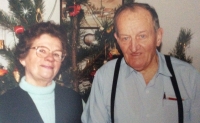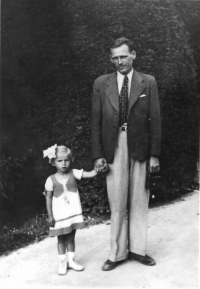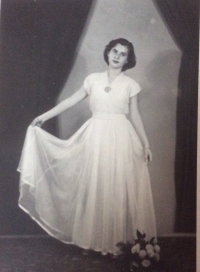“Šarlota Olšáková: she experienced bombing, refugee life and as a wife of a political prisoner also injures graves of the communist regime.”

Download image
Šarlota Olšáková, as a single Hallerová, was born on July 9, 1933 in Petržalka, Bratislava, where she lived with her family until she was seven years old. She had a sister two years younger and a brother five years younger. In 1939 she moved with her family to Komárno, where she survived her youth. She attended a Hungarian primary school in Komárno. From the age of twelve, she went to a Slovak burgher in Komárno for four years. Then she entered the Secondary Vocational School of Economics in Nové Zámky. After school she started working as an accountant, she was a member and official of ROH. In 1960, she married František Olšák, originally from Šaštín. After the wedding, she moved to Poprad with her husband. They had a daughter, then a son. She started working as the head of the financial accounting department at the veterinary clinic in Poprad, where she remained for another thirty years. Prior to retirement, she worked as an accountant and economist at her son’s company. She retired after 1989. In 2014 she became a widow and in 2018 she moved to Košice.









